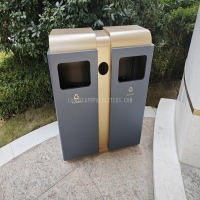Welcome to the website for landscape facilities products and knowledge.
How does the design facilitate efficient waste collection routes for service teams?
Efficient waste collection is critical for urban sustainability, and smart design plays a pivotal role in optimizing routes for service teams. By leveraging data analytics and IoT-enabled sensors, waste management systems can dynamically adjust collection schedules based on real-time fill levels. This minimizes unnecessary stops, reduces fuel consumption, and cuts operational costs.
Geographic Information Systems (GIS) further refine route planning by analyzing traffic patterns, population density, and historical collection data. Automated algorithms prioritize high-traffic areas, ensuring timely pickups while avoiding bottlenecks. Additionally, smart bins with compaction technology extend intervals between collections, allowing teams to focus on strategic locations.
The integration of AI-powered predictive analytics enhances long-term efficiency by forecasting waste generation trends. Service teams can proactively adjust routes, reducing idle time and improving productivity. Ultimately, well-designed waste collection systems not only streamline operations but also contribute to cleaner, more sustainable cities.
By combining technology with strategic planning, municipalities and private waste services can achieve faster, greener, and cost-effective waste management solutions.
Related search:

Recommendation
Double-bucket garbage bin, outdoor, metal, multi-color, powder-coated, double-bucket trash can